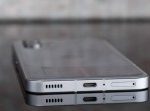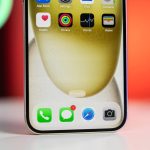It’s neither surprising, nor necessarily new scuttlebutt, but one of the most reliable Apple news scoopers of all time has chimed in to say that Apple is indeed at least serious enough about a potential switch from Lightning to USB-C on future iPhones that it’s doing testing with models equipped with the latter connector.
Bloomberg’s Mark Gurman said that Apple has been testing iPhone prototypes with USB-C ports in recent months, and that it’s also working on an adapter that would allow iPhones equipped with the more ubiquitous connector to still work with accessories designed with Lightning in mind.
Don’t chuck those Lightning cables in the trash just yet: Gurman’s report says that the earliest this could possibly happen is 2023, as the design for the current new iPhones likely arriving fall 2022 are set with Lightning on board like their predecessors.
As Bloomberg notes, a big driver for considering this change could be the EU ruling from April that approved a requirement that consumer electronics companies adopt USB-C as a common wired connection standard. Apple could theoretically work around the requirement in other ways, but standardizing USB-C as the connector of choice across all their devices would probably also be a win for them in the consumer satisfaction department, especially after moving to using it in other mobile devices like the most recent iPad and iPad Pro tablets.
Dropping Lightning would be a headache in other ways, for both Apple and consumers: It would mean Apple loses out on licensing fees and parts supply revenue for third parties looking to get official “MFI” status for iPhone accessories, and it would mean iPhone users have to either replace existing Lightning accessories or go with the rumored adapter. Plus, AirPods also still rely on Lightning for the time being, so you still can’t shift to a fully USB-C lifestyle.
USB-C is also one of the most confusing connector technologies out there in terms of the different types of cables it terminates. An older USB-C cable might provide exclusively power transfer, for instance, and very low wattage to boot. The situation has gotten a bit easier to parse with more recent cables and devices, though, so at least the possibility would exist for people to streamline their charger and cable mix.
Selfishly, I want Apple to do this because I obsess over the arithmetic of how many cables and chargers I need to pack on trips to keep all my kit charged with a necessary, but minimal, amount of redundancy. As with any reports detailing work at this stage of development, however, there’s always the chance Apple could abandon this development direction and go with Lightning again in 2023 and beyond, however, dooming us to a more complicated cable nest for the foreseeable future.
Powered by WPeMatico






